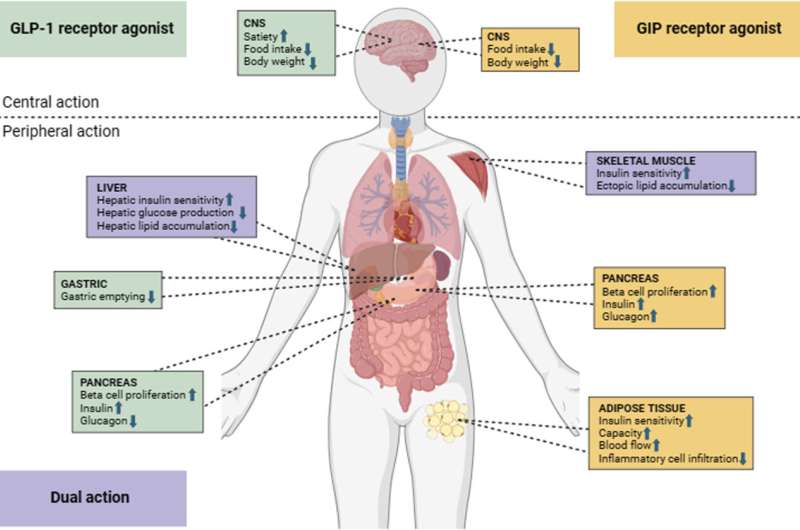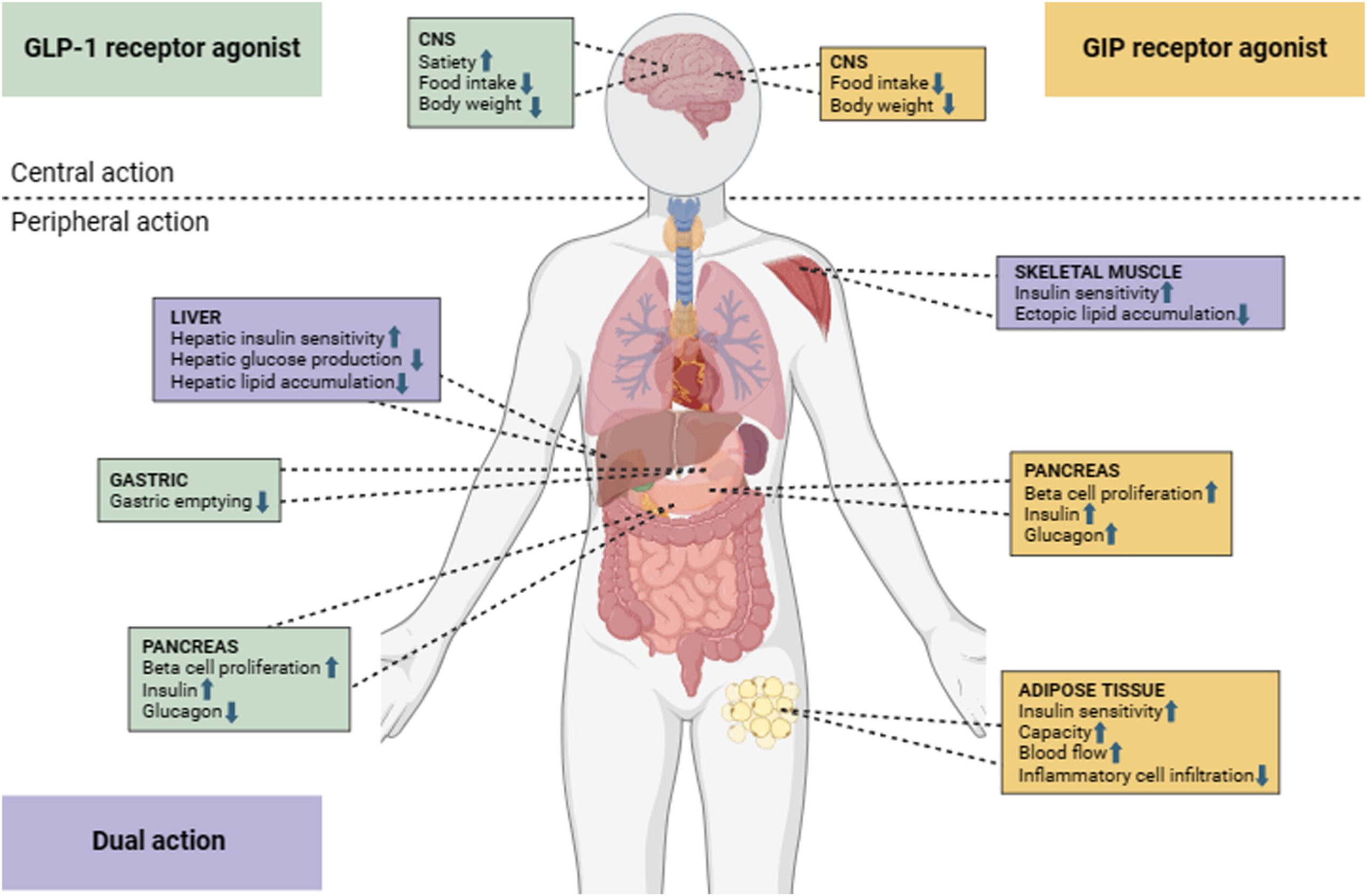
Researchers at the University of Liverpool have found that the weight-loss drug tirzepatide is associated with a significantly reduced risk of developing type 2 diabetes (T2D).
Obesity is a major worldwide health concern. Current global estimates of the number of adults living with obesity is at 650 million, with a further 340 million children and adolescents. Overweight and obesity represent the primary risk factors for the development of T2D, with T2D driving excess morbidity and mortality.
The study, published in eClinicalMedicine, used anonymized electronic medical records from a global federated database. Two cohorts of individuals were generated from this data; group one was those without pre-existing T2D, the second with T2D. Using real world data, tirzepatide was tested in comparison to another weight loss drug, semaglutide.
Compared to semaglutide, tirzepatide was found to be associated with significantly reduced risk of developing T2D in people living with obesity, and a reduction in major adverse cardiovascular events in people with T2D.
Dr. Uazman Alam, Diabetes & Obesity Research, Institute of Life Course and Medical Sciences, University of Liverpool and Liverpool University Hospital NHS Foundation Trust, said, “Around one in every four adults is living with obesity, which is a major risk factor for diabetes. Around 4 million people have type 2 diabetes in the UK, with diabetes complications costing £6.2 billion a year for the UK health care system. These findings are incredibly positive in helping us address this significant health challenge.”
Dr. Matthew Anson, clinical research fellow, University of Liverpool added, “In part, weight loss as a result of the drug may have played a role in the reduction of developing type 2 diabetes and also reducing cardiovascular complications. Now, definitive randomized control trials are needed to better understand how tirzepatide could be used to prevent T2D in a population at higher risk of developing it.”
More information:
Matthew Anson et al, Incidence of new onset type 2 diabetes in adults living with obesity treated with tirzepatide or semaglutide: real world evidence from an international retrospective cohort study, eClinicalMedicine (2024). DOI: 10.1016/j.eclinm.2024.102777
Citation:
Study sees potential benefits of obesity drug tirzepatide in tackling type 2 diabetes (2024, August 20)
retrieved 13 September 2024
from https://medicalxpress.com/news/2024-08-potential-benefits-obesity-drug-tirzepatide.html
This document is subject to copyright. Apart from any fair dealing for the purpose of private study or research, no
part may be reproduced without the written permission. The content is provided for information purposes only.

